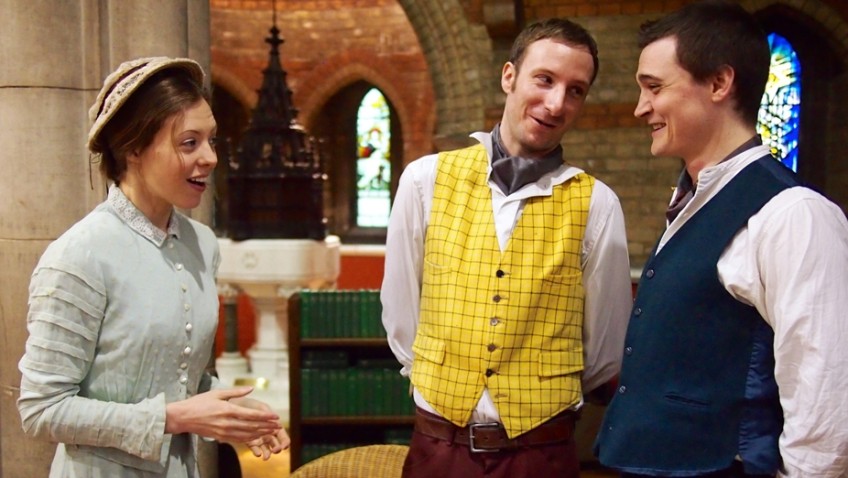Robert Tanitch reviews Our American Cousin at Finborough Theatre London NW10
OUR AMERICAN COUSIN was the play President Abraham Lincoln was watching at the Ford Theatre in Washington D C on 14 April 1865 when he was assassinated by John Wilkes Booth.
The old bad taste joke – “Well, apart from that, Mrs Lincoln, how did you like the play?” – is still current.
The play was written by the prolific and versatile British playwright, Tom Taylor. It had premiered in New York in 1858 and in London in 1861.
The comedy was inspired by the Americans coming to the Great Exhibition of 1851 at Crystal Place. A rich Yankee saves some British aristocrats who are in financial difficulties from a corrupt lawyer.
The play was mediocre but it was extremely popular and its popularity was due entirely to Edward Askew Sothern’s performance as Lord Dundreary, one of the great comic performances of the nineteenth century.
Dundreary, with his mutton-chop whiskers, droopy moustache, tartan trousers, ankle-length coat, and monocle was a caricature of an asinine, vain, indolent peer. He simpered, he lisped, he skipped, he bumped into the furniture and he ad-libbed.
 Sothern hijacked the play completely and made a supporting character the central character. The high spot was his reading of his idiotic brother Sam’s letter. At every performance he had to do an encore.
Sothern hijacked the play completely and made a supporting character the central character. The high spot was his reading of his idiotic brother Sam’s letter. At every performance he had to do an encore.
Sothern spawned a whole industry. There were Dundreary shoes, hats, ankle-length coats, dressing-gowns, plaid trousers, long whiskers and monocles. It’s a hard act to follow.
Lydia Parker’s revival is the first London production in more than a century. The absence of Sothern means that the American cousin can now rightly take centre stage. Solomon Mousley is a bit on the young side but knows how to play the role for Yankee charm. His funniest scene is the one when he is courting a girl he has no intention of marrying in the presence of her mama.
Interestingly, it was at the climax of this very scene that Lincoln was shot. Booth hoped the laughter would mask the sound of the gun shot.
To learn more about Robert Tanitch and his reviews, click here to go to his website




